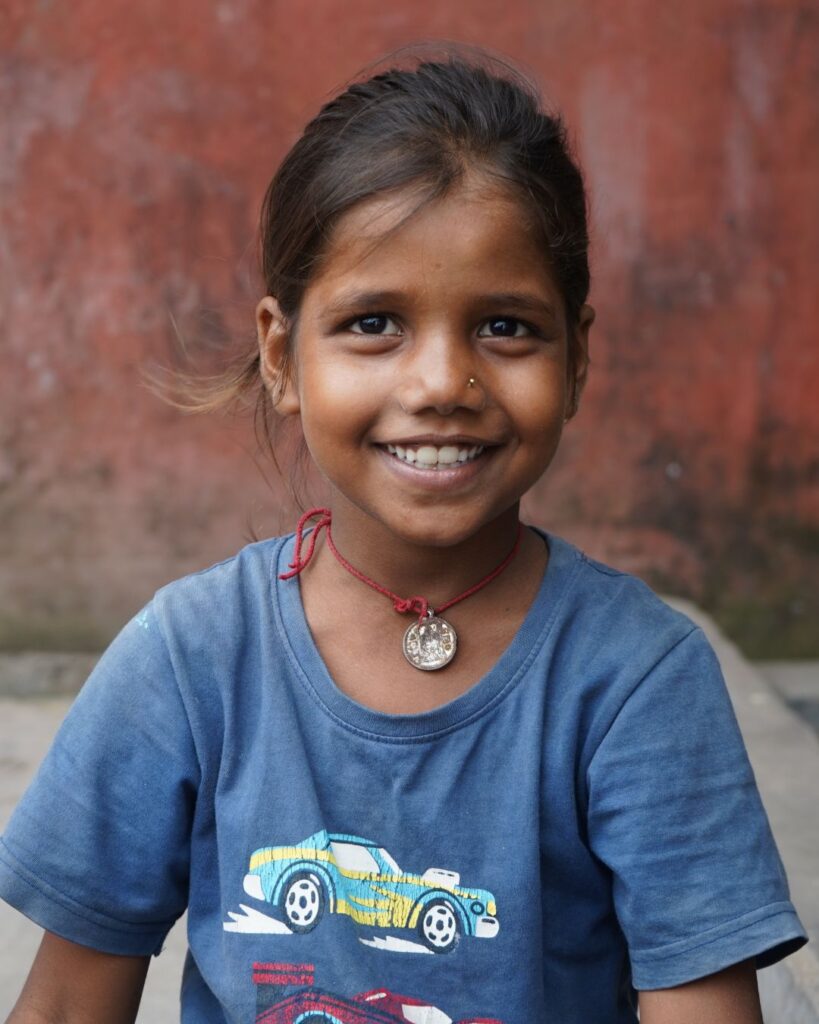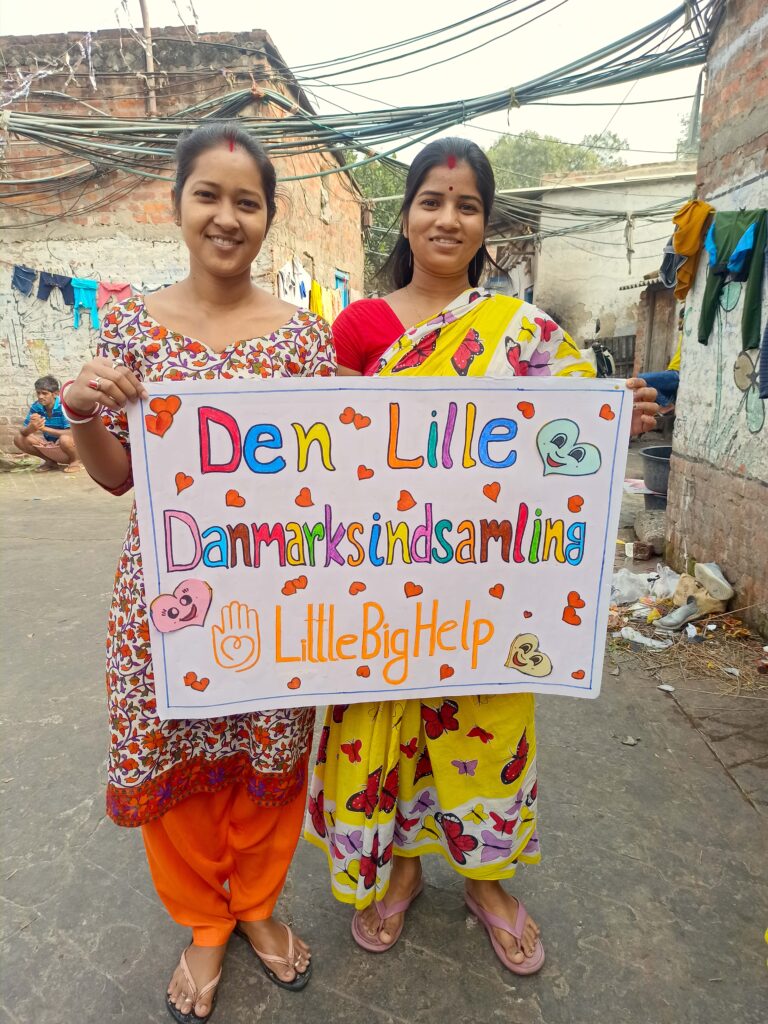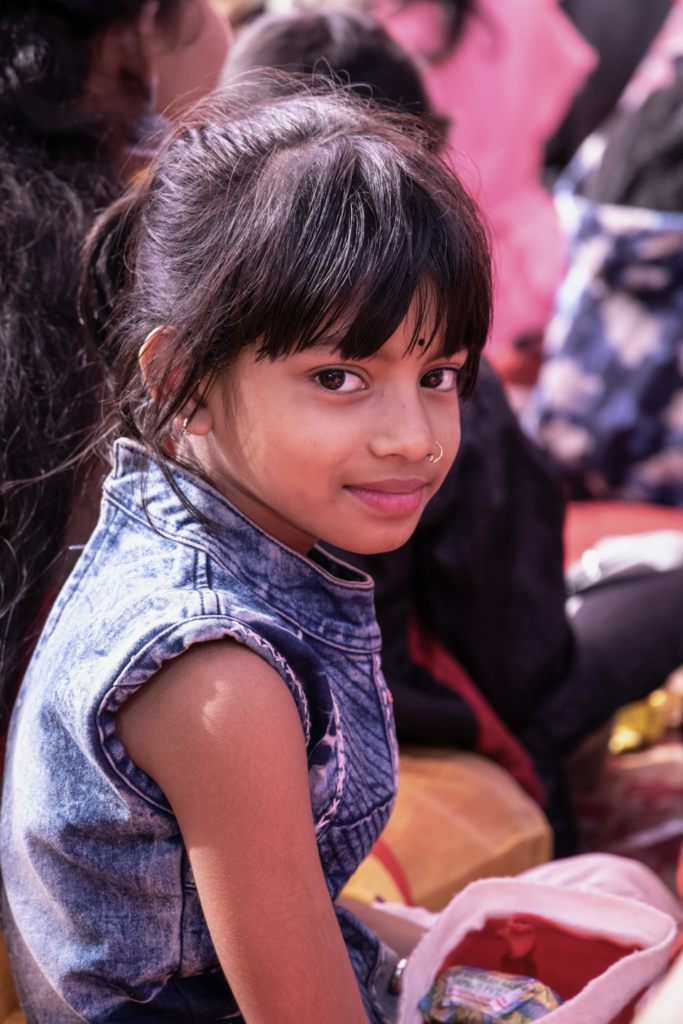Why is it so hard
to be a woman in the slum?
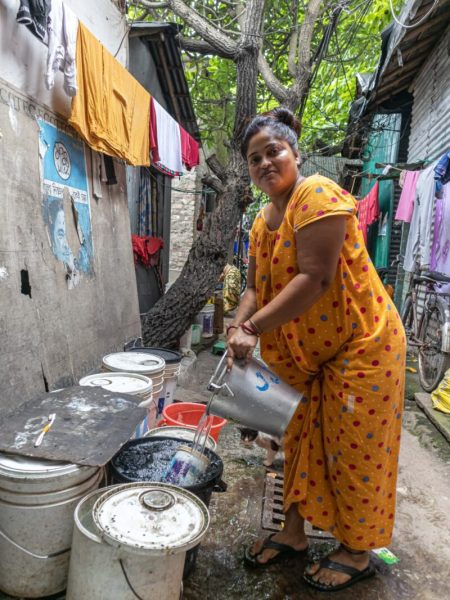
When we start new skills training projects in the slums and encourage girls and women to participate, one might be tempted to think that the offer would be welcomed with open arms: Free education for poor women who often do not work – doesn't that sound good?
However, the reality we often encounter is different. It can take several years before some of the women are either mentally prepared or even allowed to participate in our skills project. To understand why, one must grasp the upbringing these women have had and the life they are still living.
A common story we hear is that girls have grown up without being valued as highly as their brothers. When they get married, a dowry is paid, and they then move in with their in-laws. All the skills these young women acquire will thus benefit the family they marry into. Therefore, it is often not in the family’s interest to let girls go to school and get an education, but rather to help with household chores so they can be useful before getting married.
And this mindset and valuation influence the girls. According to the “National Family Health Survey” from India in 2019-2021, 45.4% of women and 44% of men believe it is acceptable to beat a wife if, for example, she refuses sex or neglects her domestic duties.
This means that nearly half of the Indian population, including women themselves, believe there are circumstances where domestic violence is justified. This figure is likely higher in the slums, where we encounter many women who hold this belief.
When these women get married – often in arranged marriages – they move to their husband’s and in-laws’ home, where they are expected to take care of all household chores and preferably not leave the house.
There’s laundry to wash, meals to prepare, cleaning to do, water to fetch, children to care for, and elderly to attend to, just to name a few tasks. Essentially, they move into a stranger’s family where they are responsible for everything. Unfortunately, we also often see in the slums that men develop substance abuse problems, either with alcohol or drugs, leading to violence and the husband’s meager income not being used for the family’s benefit.
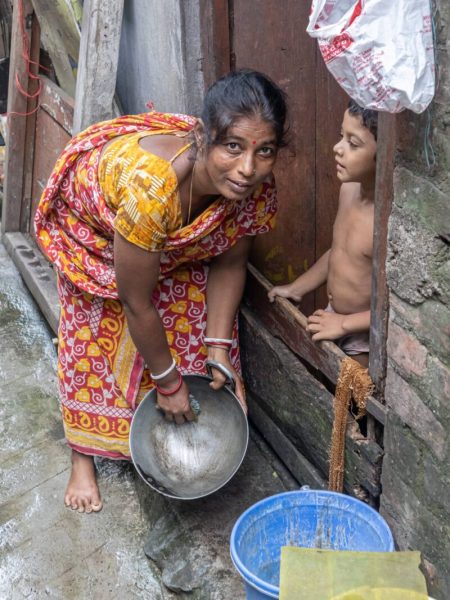
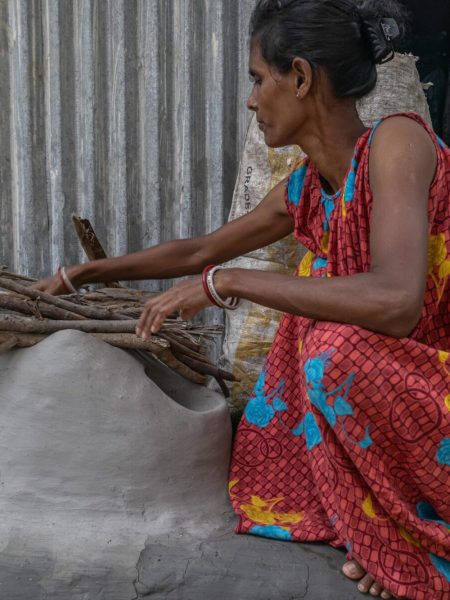
So when we start a new project, we first encounter women who find it difficult to see how they can find time to participate in our projects – and even understand that there is actually an offer for them here. And we meet their husbands, who think it unnecessary for their wives to start learning something new.
Therefore, our awareness-raising work in the slum areas is extremely important. This includes both the community meetings that are held and the individual visits to families’ homes. Here, we see a gradual understanding emerging of the opportunities that can arise when another family member earns an income. And when the first women dare to learn one of our trades and become an inspiration, other women can also begin to dream of a better life.
To find out more about what happens in these skills training projects, you can read more about our projects or learn about how Jivika’s life has been transformed through our project.
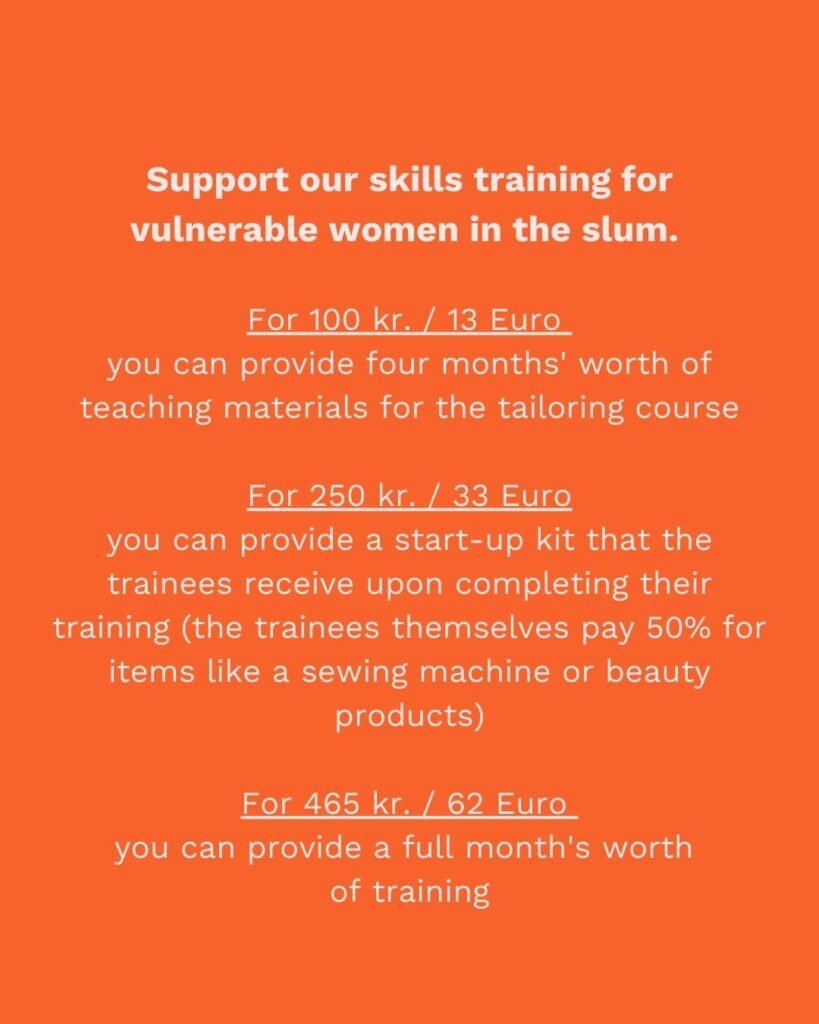
Would you like to support our projects in providing new skills to vulnerable women? You can support our work with either a single or monthly donation below. Thank you for your support!
Do you wish to donate in other currencies?
Donate in GBP here
Donate in EURO here
Donate in USD here

